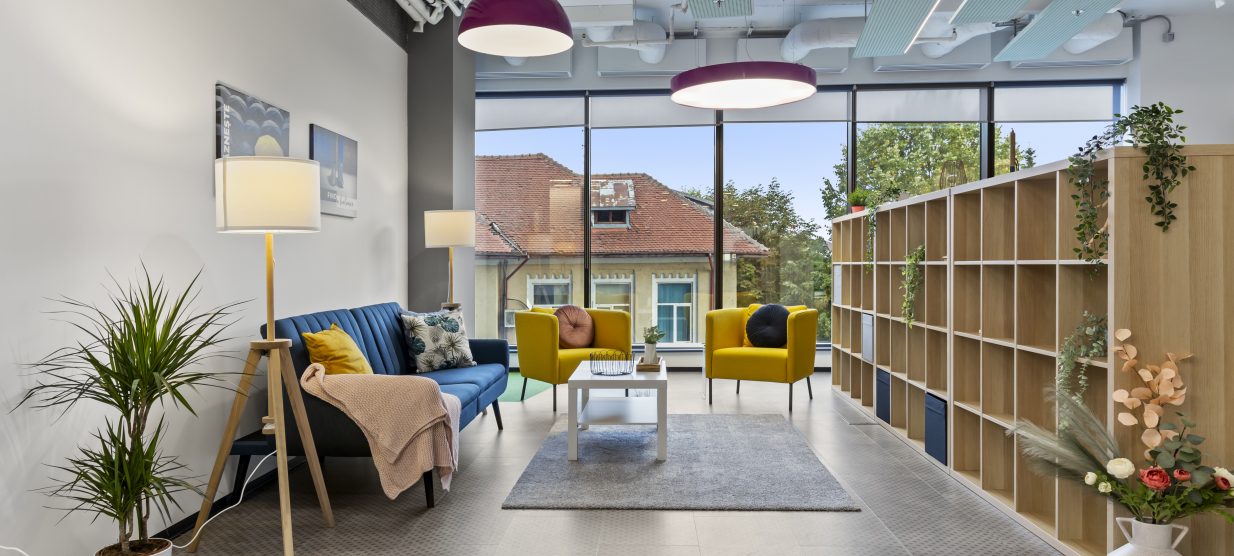Why Flexible Workspaces Are the Key to Employee Satisfaction
In the modern business world, the traditional office setup is rapidly becoming a relic of the past. As companies strive to attract and retain top talent, the need for flexible office solutions has never been more critical. Flexible workspaces are not just about providing employees with the option to work from different locations; they are about fostering a work environment that enhances employee satisfaction, boosts productivity, and supports overall business growth.
This blog post explores why flexible workspaces are essential for employee satisfaction and how they can benefit both employees and employers.
The Rise of Flexible Workspaces
The concept of flexible workspaces has gained significant traction in recent years, driven by technological advancements and shifting employee expectations. According to a report by JLL, the flexible office market is projected to grow by 25% annually over the next five years. This growth is a testament to the increasing demand for work environments that offer flexibility and adaptability.
Benefits of Flexible Office Solutions
Enhanced Employee Satisfaction
Flexible workspaces play a crucial role in enhancing employee satisfaction. When employees have the autonomy to choose their work environment, they are more likely to feel valued and empowered. A survey by Gallup found that employees who have flexible work arrangements report higher levels of job satisfaction and engagement. This increased satisfaction translates to lower turnover rates and higher retention, which are critical for the long-term success of any business.
Improved Work-Life Balance
One of the most significant benefits of flexible office solutions is the improvement in work-life balance. By allowing employees to work remotely or choose their working hours, companies can help reduce the stress and burnout associated with rigid work schedules. According to a study by Buffer, 98% of remote workers want to continue working remotely at least some of the time for the rest of their careers, citing better work-life balance as a primary reason.
Increased Productivity
Flexible workspaces can also lead to increased productivity. When employees have the freedom to work in environments where they feel most comfortable and focused, they are more likely to produce high-quality work. A report by Stanford University revealed that remote workers are 13% more productive than their in-office counterparts. This boost in productivity can have a significant positive impact on a company’s bottom line.
Types of Flexible Workspaces
Co-working Spaces
Co-working spaces are shared office environments where individuals from different companies work alongside each other. These spaces offer a range of amenities, including high-speed internet, meeting rooms, and communal areas. Co-working spaces are ideal for freelancers, startups, and small businesses looking for a cost-effective and flexible office solution. The social aspect of co-working spaces can also foster collaboration and innovation.
Serviced Offices
Serviced offices are fully equipped, ready-to-use office spaces that come with all the necessary amenities and services. These offices are perfect for businesses that need a professional workspace without the hassle of long-term leases and high upfront costs. According to a report by Instant Offices, the demand for serviced offices has increased by 20% annually, reflecting their growing popularity as a flexible office solution.
Remote Work
Remote work is perhaps the most flexible of all workspace options, allowing employees to work from anywhere with an internet connection. This model eliminates the need for a physical office space entirely, reducing overhead costs and providing employees with the ultimate flexibility. Companies that embrace remote work can attract talent from a global pool, further enhancing their competitive edge.
Implementing Flexible Workspaces
Assessing Employee Needs
The first step in implementing flexible workspaces is to assess the needs and preferences of your employees. Conduct surveys or hold meetings to gather feedback on what types of work environments would best support their productivity and satisfaction. Understanding these needs will help you tailor your flexible office solutions to meet employee expectations.
Investing in Technology
To support flexible workspaces, companies must invest in the right technology. This includes reliable communication tools, project management software, and cybersecurity measures. Ensuring that employees have access to the necessary technology will enable seamless collaboration and productivity, regardless of where they are working.
Creating a Flexible Work Policy
Developing a clear and comprehensive flexible work policy is essential for the successful implementation of flexible workspaces. This policy should outline the expectations, guidelines, and procedures for flexible work arrangements. It should also address issues such as performance measurement, communication protocols, and data security.
The Future of Flexible Workspaces
As the business landscape continues to evolve, flexible workspaces will become increasingly important. Companies that embrace flexible office solutions will be better positioned to attract and retain top talent, enhance employee satisfaction, and improve overall productivity. According to a report by Deloitte, 73% of workers believe that flexible work arrangements will be a standard practice in the future.
Flexible workspaces are no longer just a trend; they are a fundamental aspect of the modern workplace. By providing employees with the flexibility to choose their work environment, companies can significantly enhance employee satisfaction, improve work-life balance, and boost productivity. As we move forward, adopting flexible office solutions will be key to staying competitive and ensuring long-term business success.
By understanding the importance of flexible workspaces and effectively implementing them, businesses can create a work environment that supports employee satisfaction and drives success. Flexible office solutions are indeed the key to a happy and productive workforce.
Ready to change? Upgrade your workspace today with our Private Daily Office service and experience the benefits of a professional environment.

Do not hesitate to contact us
Get in touch, if you have any question

